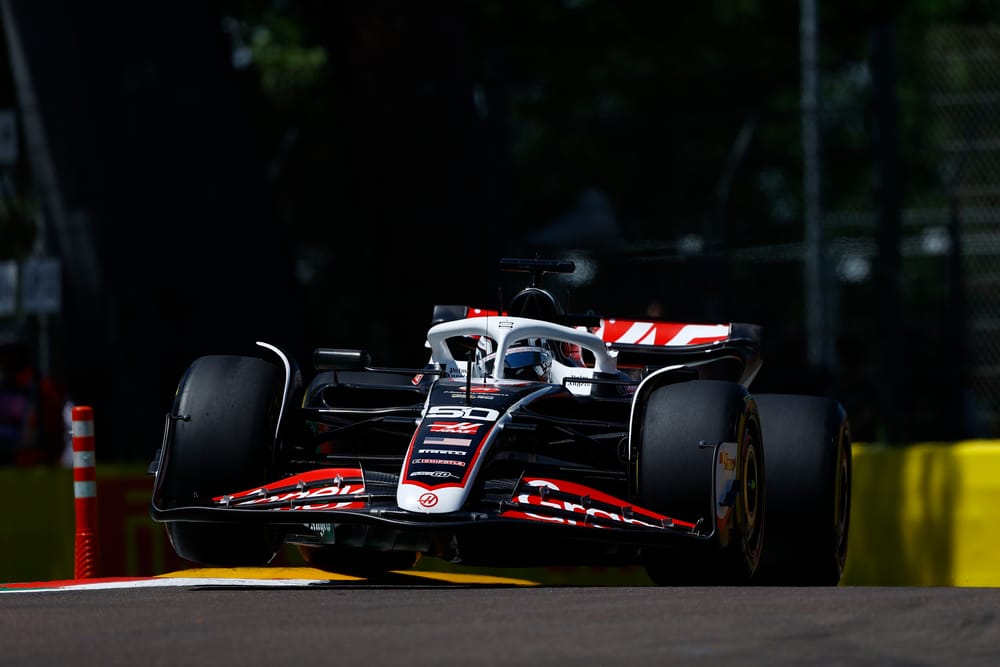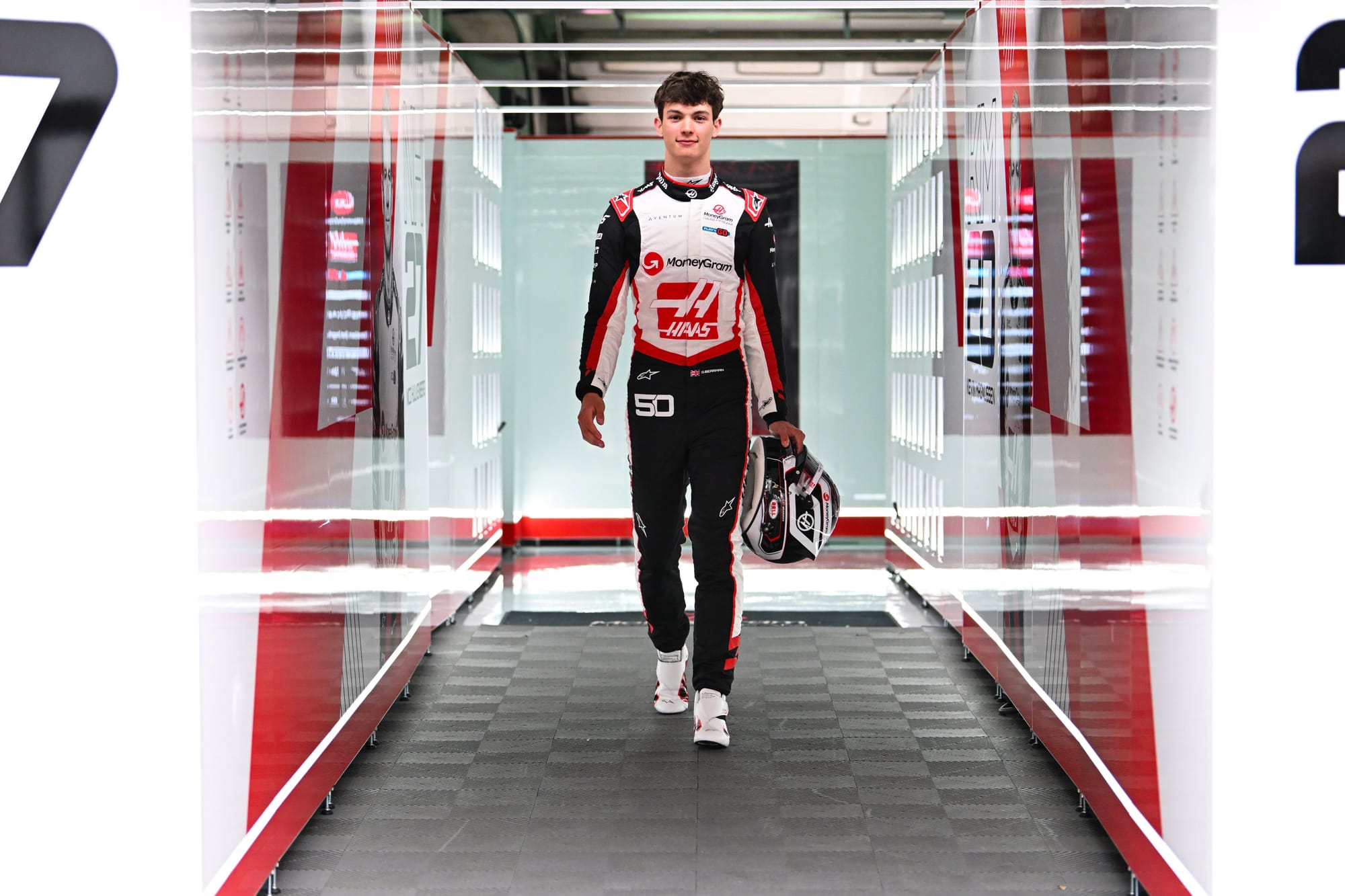Up Next

An unexpected driver ban is rarely a positive for a Formula 1 team, but Haas will benefit from Kevin Magnussen's absence from the Azerbaijan Grand Prix in terms of its preparations for 2025.
Ollie Bearman's premature Haas debut will inject extra momentum to what is already a rolling start to their relationship.
He's banked six FP1 sessions, starting in Mexico last year where he made such a big impression on the team that he immediately had one foot in the 2025 line-up, and that's valuable in building up for next year. The unexpected chance to complete a full race weekend will significantly augment that.
That's valuable not only in augmenting Bearman's experience, but also further establishing the working relationships that will be crucial next year. With so little pre-season testing, that's of immense value.
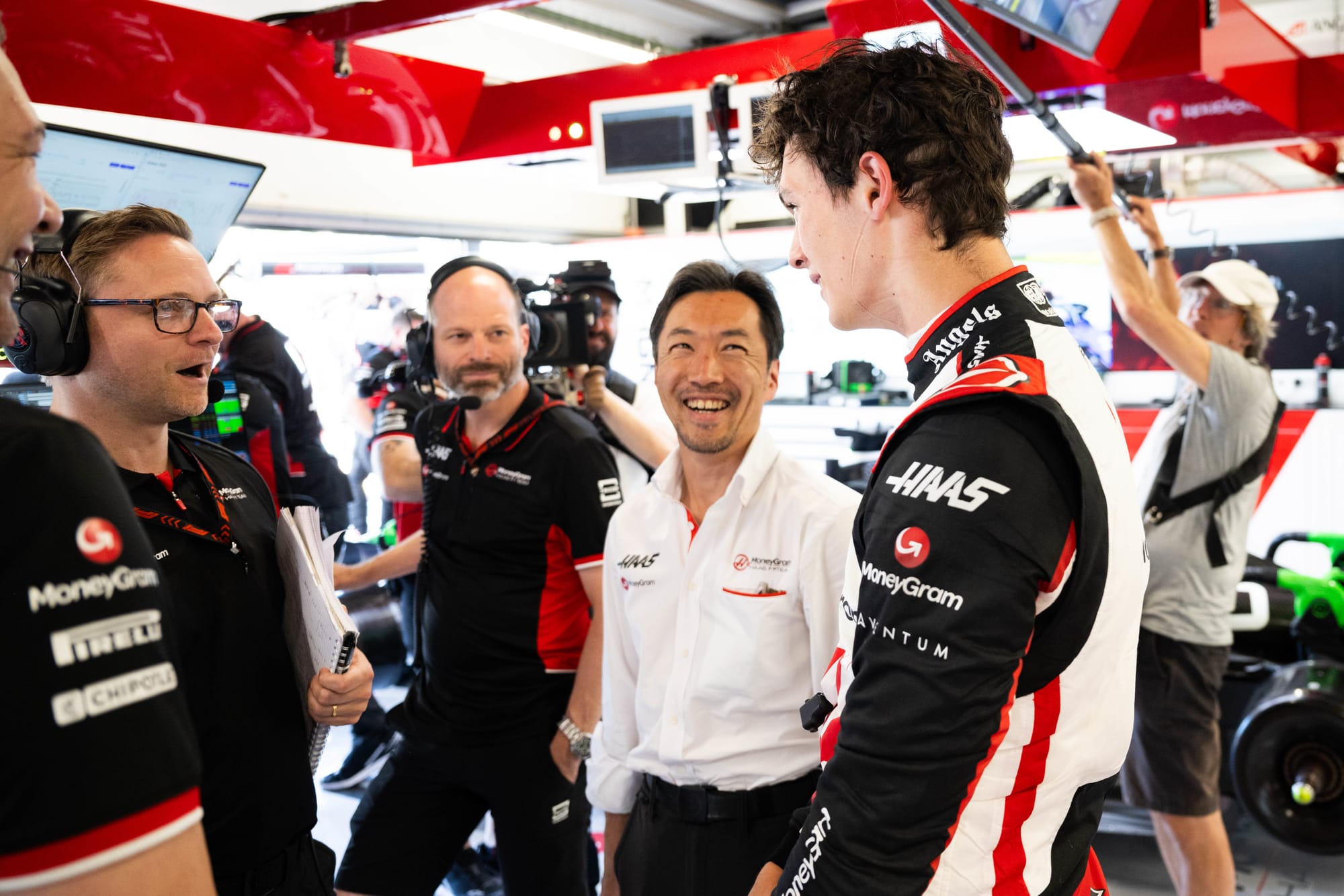
It's an unusual situation for Bearman given he shouldn't be under any undue amounts of pressure, certainly less than were this his F1 debut. He's already stashed significant credit with his outstanding performance for Ferrari at Jeddah after stepping in for Carlos Sainz from FP3, and while he will be determined to repeat that impression he has already shown himself and the world that he can cut it in F1.
He's already under contract for 2025, so in that regard he has nothing to prove. What's left is just the usual need for any driver at this level to prove themselves every time they get in the car, which is onerous enough but won't be added to by other baggage. You could argue there's the hope that a great performance might lead to the seat being given to him for the rest of the season, but it's been made clear Magnussen will be back in Singapore so that is off the table.
The obvious objective is to score points to boost Haas's hopes of challenging for sixth in the constructors' championship. With RB all over the place with its upgrades and only a six-point advantage over Haas, anything Bearman can add to the pot will be invaluable.
Given his inexperience, it would be a stretch to say he's more likely to score than Magnussen would have been, especially given how strong Magnussen's race drive was at Monza (if you disregard the mishap that earned him both a penalty that turned ninth into 10th and triggered the ban).
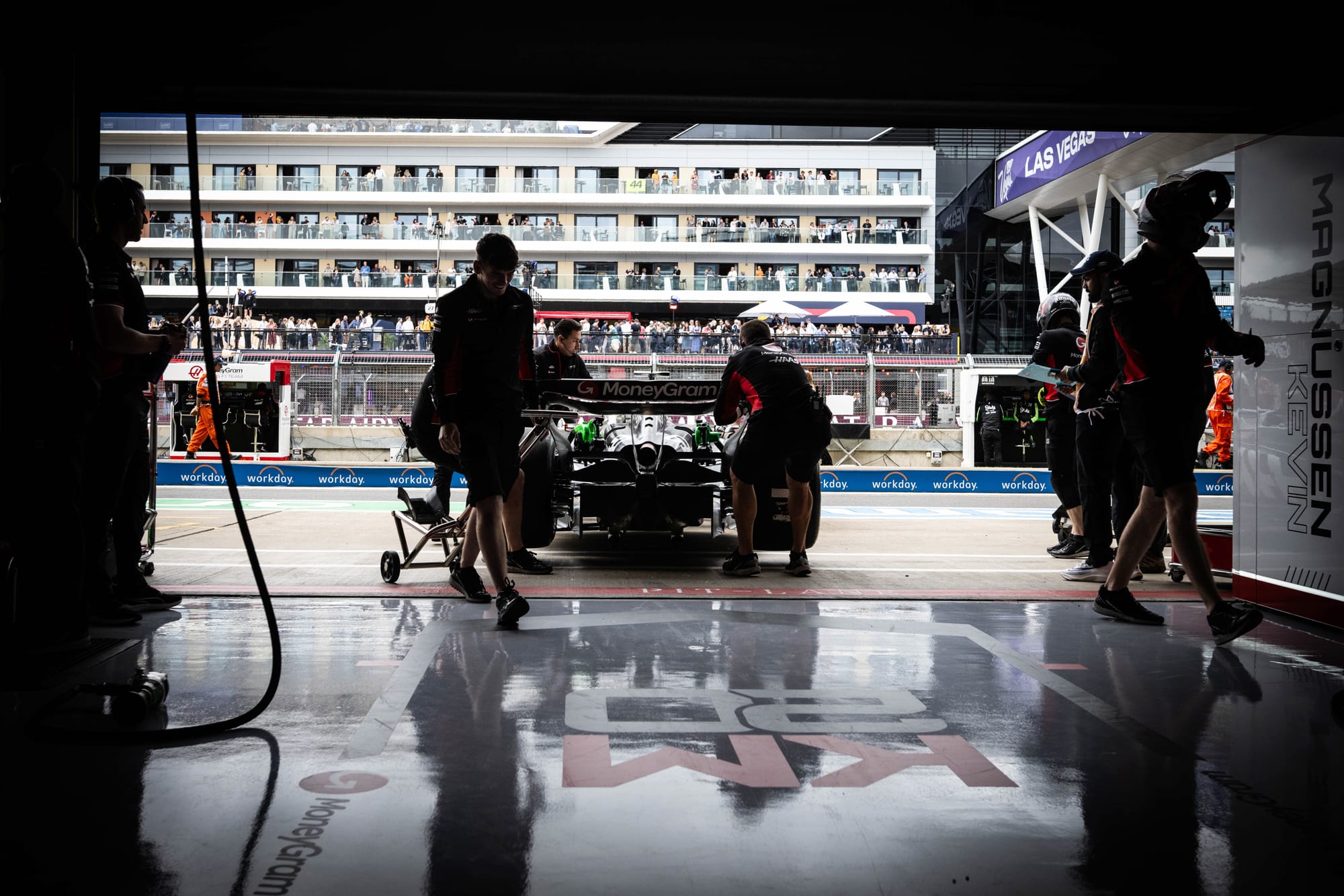
However, Bearman has proved himself capable already, so if the Haas is a strong enough midfield force in Baku - something that's difficult to predict with certainty given how tight and volatile that part of the field is - there's no reason why he can't be a points threat.
There’s also the chance to benchmark him against lead driver Nico Hulkenberg. While it is possible for the team to get a feel for this based on FP1 and test outings, a live race weekend is a very different prospect. It will allow Bearman to see how he measures up and where he still needs to make gains, and for Haas to get a clear understanding of where he is on his development curve.
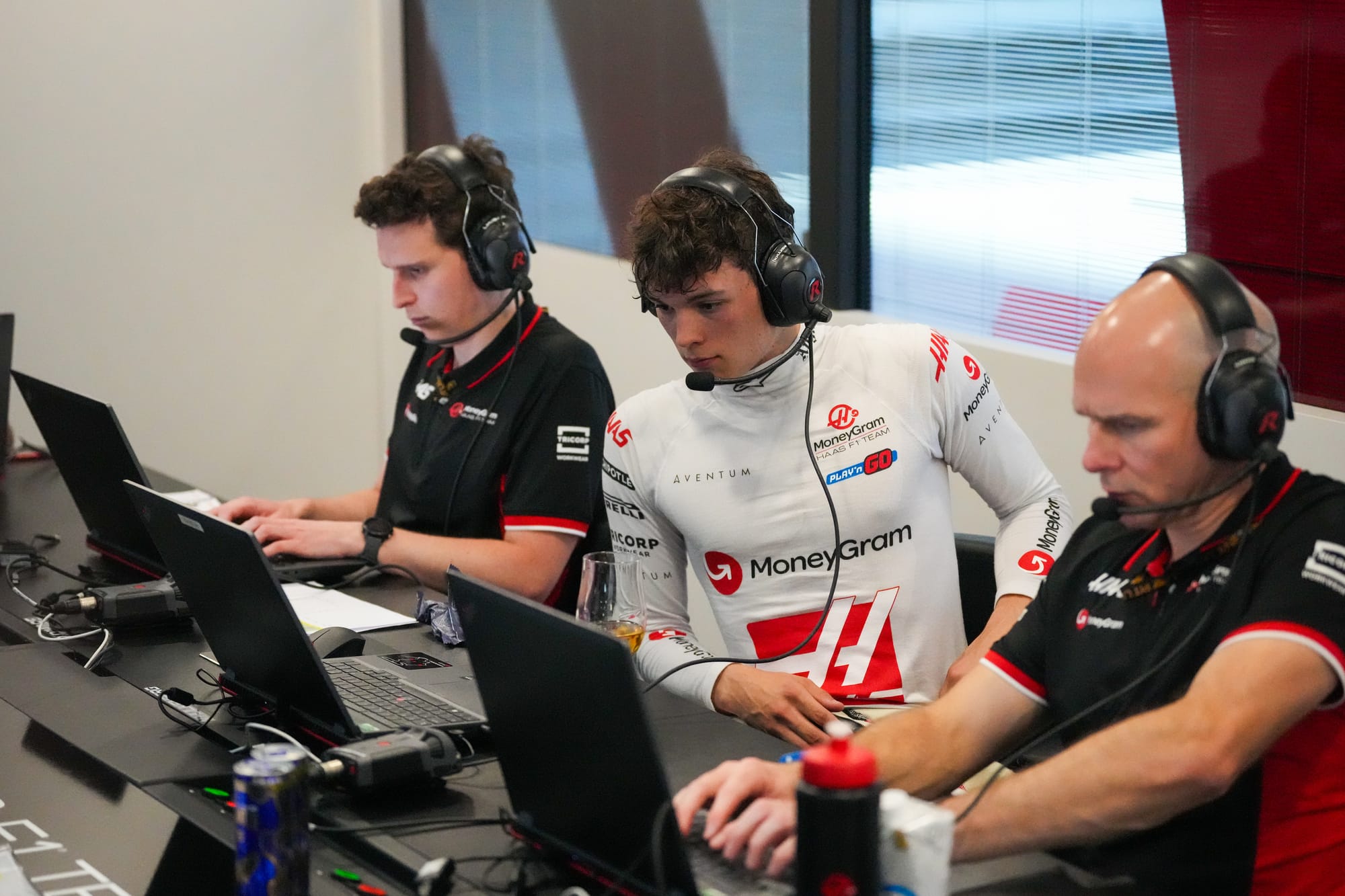
These are fringe benefits, but in F1 data - and the knowledge that can be drawn from it - is king and if you accumulate more of it you are in a better position. It will all go into the databank that is drawn on in preparing for next season and will mean that when Bearman lines up on the Australian GP grid for next year's season opener he's ahead of where he would have been without Magnussen's ban.
This makes it a weekend of lots to gain for Bearman and little to lose. As for Haas, even if it doesn't go as well as Bearman's Jeddah outing did, it gives an extra head-start for 2025. In that regard, there's perhaps no team better-prepared for the unexpected absence of a race driver than Haas.


